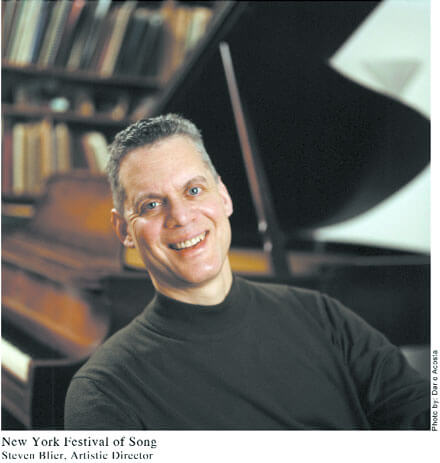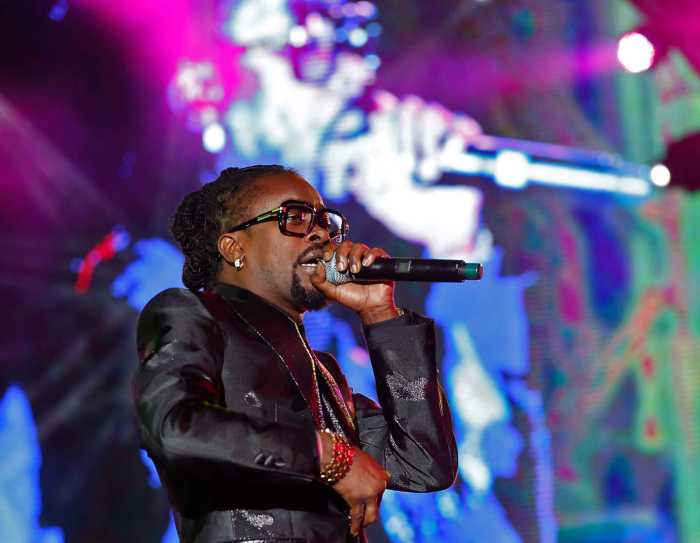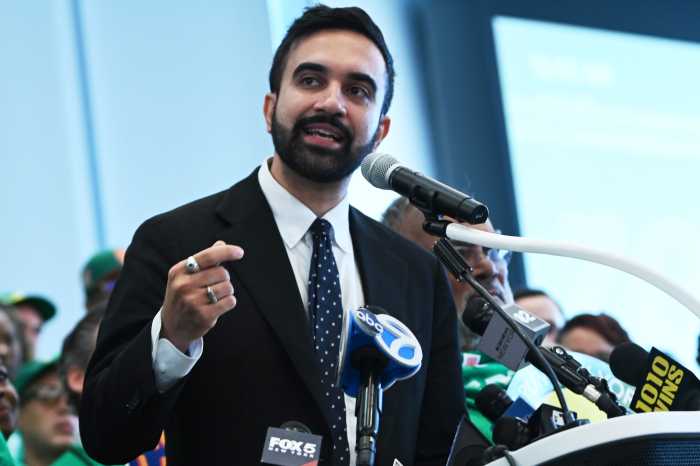Steven Blier brings a gay sensibility and a love of music to the New York Festival of Song
“Songs have a way of talking to each other,” said Steven Blier. “It’s interesting to hear a given song, but sometimes it’s doubly interesting to hear it next to something else. Both become more interesting.”
As the co-founder and artistic director of the New York Festival of Song (NYFOS), Blier probably knows better than anyone how musical matchmaking can lead to rewarding couplings, especially in a live performance.
NYFOS, now in its 16th year, is dedicated to nurturing the once-popular entertainment known as the song recital. Blier and associate artistic director Michael Barrett combine meticulous research and touches of Broadway panache to create a theatrical hybrid that reunites long-lost songs and songwriters with vocalists eager to resurrect tunes of the past.
“I program with three things in mind: the first song, the first curtain song, and the final song. It’s like writing a play with music,” said Blier, who is openly gay. “It’s kind of like a quilt.”
On November 12, Blier mines Jewish and black entertainment cultures in a new, sold-out show called “Lost Tribes of Vaudeville.” The result is a performance that Blier said will bring to life everything from early ragtime to “that Jewish scat-singing thing” to “the more sophisticated stuff” made popular by the likes of Fanny Brice, Sophie Tucker, Ethel Waters, Cab Calloway, Eddie Cantor, and Al Jolson.
Included are songs written by Duke Ellington (“Don’t Mean a Thing”), Harold Arlen (“When the Sun Comes Out”), Irving Berlin (“You’d Be Surprised”), and others, sung by vocal heavyweights Judy Kaye, Lachanze, James Martin, and Darius de Haas, with Blier on piano.
“Audiences will hear music from Jewish composers who wrote for black performers and vice versa,” he says. “Jewish composers wanted to get out of the ghetto, so they didn’t write for the Yiddish theater, they wrote for Broadway. What you get are Jewish composers who wrote the blues.”
Blier says black and Jewish vaudevillians forged uneasy but meaningful bonds with each other, something that has been lost in today’s sharply categorized musical atmosphere.
“I’m Jewish, and I can’t relate to rap and hip-hop. I think I’m intended not to. I’m not disparaging anyone’s music, but it is meant to exclude me on purpose,” he said.
“But in this concert you’ll be able to look back and see how music used to be more inclusive, less aggressively isolationist. There’s a message there.”
An accompanist and vocal coach who has been playing piano since the age of two, Blier has partnered in recitals with such artists as Samuel Ramey, Susan Graham, and Jessye Norman, and appeared at Carnegie Hall with Cecilia Bartoli and throughout North America and Europe with Renee Fleming.
Blier has programmed, performed, translated, and annotated more than 30 vocal recitals for NYFOS. Past NYFOS shows have traversed different parts of the world (Argentina, Russia) and different genres of music (the Beatles, Brahms).
The next incarnation will be an homage to Barcelona, with material from the Catalan and French art song traditions.
“Each show is intended to be quite different from the last,” said Blier. “Our motto is no two alike,” he said.
Although the NYFOS hasn’t done a specifically gay-themed show, Blier says being a gay man has played a significant role in his programming decisions.
“I think that as gay people we’re used to being outside of the mainstream. We’re used to being adventurous,” he explained.
In this concert, Blier says a gay sensibility comes through in certain songs, some slyly. Two male performers, for example, sing songs originally written for women, something that would have been unheard of back in vaudeville’s heyday.
“Vaudeville was one of the straightest mediums ever. It’s not that there weren’t gay performers. There were,” he said. “Vaudeville was just really mainstream. They were writing for shows that were going to travel across the country, in Peoria and the suburbs of Peoria.”
Blier pointed out, however, that toward the end of vaudeville’s cultural reign, composers like Cole Porter and Lorenz Hart began to include not-so-coded messages and double entendres in their songs.
“When you hear Hart and you get the double meaning you blush,” he said.
Not that NYFOS has been in the closet. Blier said the festival opened its season in October with a tribute to the New York poets Frank O’Hara, John Ashbery, and others, with song settings by Ned Rorem and Virgil Thompson.
“Many of the poets of the time were engaged in very non-closeted writing, such as composing love poems to their boyfriends,” he said.
With a laugh and a smile, Blier added: “It was the gayest program we’ve ever done.”



































